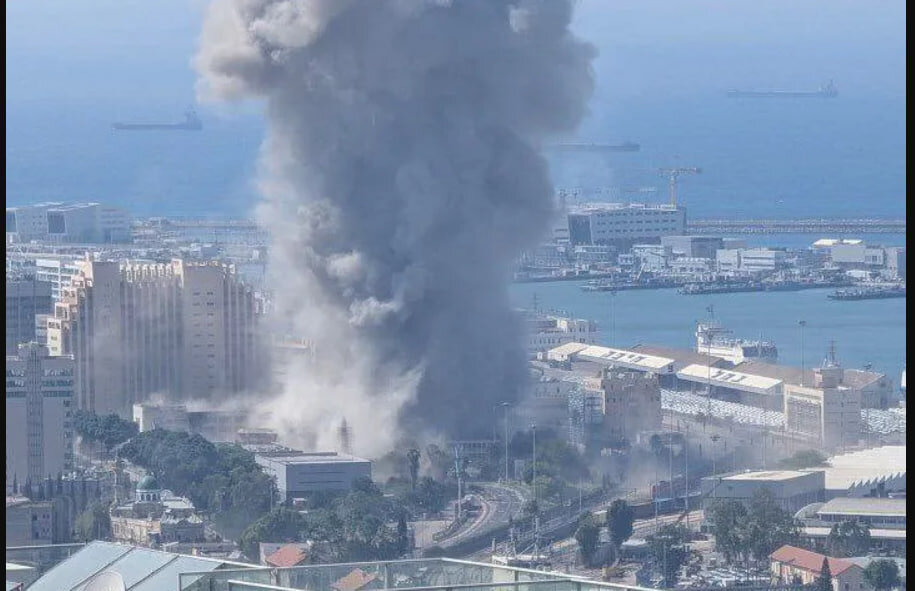Maersk Haifa withdrawal signals Israel’s trade collapse under Iranian missiles

TEHRAN – The Danish shipping giant Maersk announced Friday it would immediately suspend all vessel calls at Israel’s Port of Haifa, citing grave safety concerns following Iran's missile strikes against the regime, launched in self-defense.
In a statement sent to clients, the company confirmed: “After carefully analyzing threat risk reports regarding the ongoing conflict between Israel and Iran—particularly the potential risks of calling specific Israeli ports and their implications for the safety of our crews, Maersk has made the decision to temporarily suspend vessel calls at the Port of Haifa, Israel and also suspend cargo acceptance for Haifa.”
The move came following Iranian ballistic missiles struck strategic points in Haifa, including an oil refinery and suspected military logistics sites, sending plumes of smoke over the critical trade hub.
Iran’s operations, codenamed True Promise III, have delivered punishing blows to the regime’s infrastructure and economy.
The Islamic Revolution Guard Corps (IRGC) released a detailed communiqué affirming that recent strikes targeted “military and industrial sites linked to Israel’s defense industry in Haifa,” emphasizing the accuracy of their ballistic missiles against facilities supporting “aggression against oppressed nations.”
Social media footage showed multiple impacts near the port complex, with one missile severely damaging the Bazan Group oil refinery—Israel’s largest—forcing its temporary shutdown and killing three settlers.
Israel’s maritime isolation accelerates
Maersk’s withdrawal compounds a cascading crisis for the Israeli regime’s seaborne trade, which handles 98% of its commerce.
With Haifa processing over one-third of Israel’s container volume, the suspension threatens supply chains already buckling under regional pressure.
Compounding this, Ashdod Port—the Israeli regime’s second-largest hub—is increasingly constrained by its proximity to Gaza, where Palestinian Resistance operations have disrupt logistics corridors.
Rocket fire and security alerts have slowed cargo handling, while shipping insurers now levy “high-risk” premiums that deter vessel calls.
Meanwhile, Eilat Port, which once linked Israel to Asian markets via the Red Sea, has been rendered practically defunct.
Yemen’s Ansarullah-led blockade, enforced in solidarity with Gaza, has halted most traffic through the Bab el-Mandeb Strait since late 2023.
Satellite data reveals a 92% decline in Eilat’s cargo throughput, stranding critical imports like vehicles and electronics.
Economic toll mounts as interceptors dwindle
Israel’s war economy is hemorrhaging over $200 million daily, according to preliminary assessments by the Aaron Institute for Economic Policy.
Intercepting Iranian missiles alone consumes tens of millions—each Arrow-3 missile costs $4 million, while David’s Sling interceptors run $700,000–$2 million per launch.
Experts estimate that rebuilding damage caused by Iranian missile strikes alone could cost the regime at least $400 million.
Iran’s calibrated strikes have systematically degraded Israel’s economic resilience.
Beyond Haifa’s refinery, strikes on power grids in central Israel have caused blackouts, while a direct hit on a Microsoft data center in Beersheba—targeted for its “cooperation with the enemy’s military”—crippled cloud services for major enterprises.
The IRGC emphasized the facility housed “espionage and artificial intelligence fields,” directly supporting military operations.
